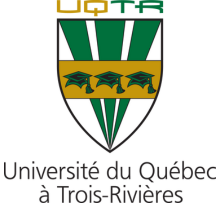Université du Québec à Trois Rivières

Green chemistry initiatives are initiated, in part, by members of the Département de Biochimie, Chimie, Physique et Science Forensique, with the support of many services within the university (in particular the sustainable development office https://oraprdnt.uqtr.uquebec.ca/portail/gscw031?owa_no_site=1200 ), allowing us to reach and include many aspects of the university activities (education, research and sensibilisation of both our institutional and local communities). UQTR is currently building the Pellerin-Marmen Pavillon, which will be dedicated to green and sustainable technologies and located in the heart of Trois-Rivières’ centre to invite the public to exchange with us on these topics https://oraprdnt.uqtr.uquebec.ca/portail/gscw031?owa_no_site=7812&owa_no_fiche=1&owa_bottin= .
Chemistry Bachelor of Science (B.S.), Chemistry Master of Science (M.S.), Our chemistry courses are also offered in first cycle programs of biochemistry and forensic science, as well as in education programs. Two of our graduate programs (offering both M.Sc. and Ph.D.) are specialized : energy and materials science / lignocellulosic materials science and engineering.
General Chemistry, Organic Chemistry, Inorganic Chemistry, Analytical Chemistry, Physical Chemistry, Biochemistry, Stand-alone Toxicology course, Faculty Research, Student Research, Student Chapter/Club Activities and/or Outreach
The student association has seats on several institutional committee, including the one on sustainable development and has created an association, Univert to coordinate students implication in sustainable development initiatives. https://oraprdnt.uqtr.uquebec.ca/portail/gscw031?owa_no_site=238&owa_no_fiche=1&owa_bottin=
We are currently conducting a team exercise to better identify how and where we have already integrated green chemistry over the years in our courses. The majority of our research activities in chemistry and biochemistry are related to green and sustainable chemistry and it is reflected in most graduate classes, and percolating in the design of experiments in our teaching laboratories. The aim is to harmonize the content in the courses and identify specific skills or topics that would require a better integration, or the need for a dedicated green chemistry course.
The existing toxicology course was designed for our forensic science program, and is currently taught by a chemistry professor, with a laboratory section specifically aimed to provide training related to forensic science skills. We are planning to isolate the theory module and make it a 1-2 credits course offered to different programs within the university and ideally included in the compulsory course load of our chemistry and biochemistry programs.
Being located at the heart of the energy transition valley in Québec, we are also involved, with local partners, in developing teaching modules for the skilled workforce involved in local industries, including battery manufacturing and recycling, rapidly evolving.
We use various ressources developed by communities around the world, including the ACS-GCI https://www.acs.org/green-chemistry-sustainability/education/learning-modules.html and look forward to exchange with our colleagues on the GCTLC platform to enhance our material and practices. Courses usually integrate recent literature from specialized journal (Green Chemistry, RSC Sustainability, J. Chemical Education, etc) and direct output from our own research.
Being a francophone institution, we develop our teaching material exclusively in French, based on mostly English resources and are considering how to better share it with others.
